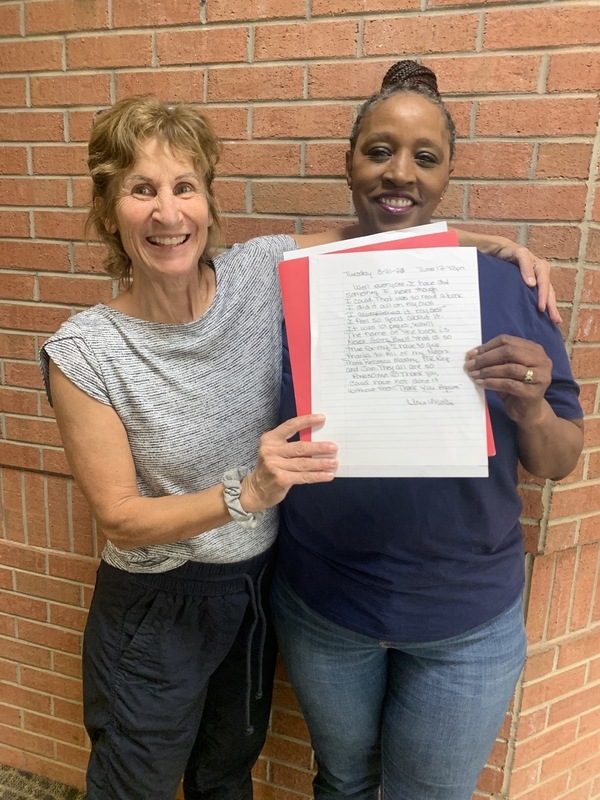The Adult Literacy program provides 1-on-1 volunteer tutors for English speakers whose reading, writing, spelling, or math skills are below a basic skills level. This program serves approximately 50 students per year. Students come to Literacy Together because they want to improve job prospects, help their children in school, enroll in a High School Equivalency Program, and better navigate the world around them. Adult Literacy students often have learning disabilities or differences such as dyslexia. Tutors are trained to help students navigate these learning challenges, and we also recognize the unique strategies that students have used to learn and adapt.
 Although we serve a wide variety of literacy needs, there are two main tracks in the Adult Literacy program: Basic Skills tutoring and High School Equivalency (HSE) preparation.
Although we serve a wide variety of literacy needs, there are two main tracks in the Adult Literacy program: Basic Skills tutoring and High School Equivalency (HSE) preparation.
In the Basic Skills track, the student’s goal is to improve their reading, writing, and spelling. That is most often connected to their personal goals. Students complete multiple assessments to determine their literacy level and their specific learning challenges, then they are placed in either the Beginning or Intermediate tutoring track. Tutors who would like to support students with Beginning Basic Skills will complete a training in phonics-based and multisensory literacy instruction. They will learn to create individualized lessons using Orton-Gillingham methodology and the Wilson Reading System curriculum. Tutors who would like to support students with Intermediate Basic Skills will complete a training in phonics-based instruction using the Megawords series. All Basic Skills tutors commit to working with their student 1-on-1 for a minimum of 1 year. Students set their own tutoring schedule and meet 2-3 hours a week with their tutor. Every Basic Skills lesson is tailored to the skills, needs, preferences, and goals of the student.
In the High School Equivalency (HSE) track, the student’s goal is to earn a High School Equivalency credential. That is most often connected to their professional goals. The most common path to this credential is the GED, but some students choose to earn this credential through Adult High School (AHS). Whether they would like to work with a GED student or an AHS student, tutors complete a training in the subject of their choice. Students complete multiple assessments to determine their literacy level and their specific learning challenges. Tutors commit to working with their student 1-on-1 for a minimum of 6 months. Students set their own tutoring schedule and meet 2-3 hours a week with their tutor. Every HSE lesson is tailored to the skills, needs, preferences, and goals of the student.
While the aim of our work is to meet the educational needs of our Adult Literacy students, we understand they are often dealing with serious and ongoing obstacles. That may include a lack of transportation and childcare, inadequate medical care, struggles with mental health, generational trauma, unstable housing or homelessness, a history of addiction, returning to the community after incarceration, or living below the federal poverty level. The program director works to connect students to the resources they need. In the face of these barriers, our students appreciate the structure and regularity of tutoring; at the same time, tutors have to be flexible, creative, and able to adapt. We are all working and learning together.
Daniel describes his own GED journey with his tutor, Ed.
Read more Adult Literacy Program success stories
Becoming a Volunteer Tutor
Adult Literacy tutoring provides students with a fresh start to their education, and their tutor is their partner in this journey. If you’re interested in this work, please sign up online to come to an online volunteer orientation meeting.
Referring a Student
Most Adult Literacy students come to Literacy Together through referrals. Because it can be intimidating for an adult to disclose reading struggles, Literacy Together reaches out to the community to identify and recruit these students. Our sustained success depends on you – family, neighbors, employers, co-workers, educators, clergy, and social services agencies – to help adults get the help they need. Click here to learn more, and contact Literacy Together at info@lit-together.org or 828-254-3442 x202 to refer an adult in need of literacy assistance.
